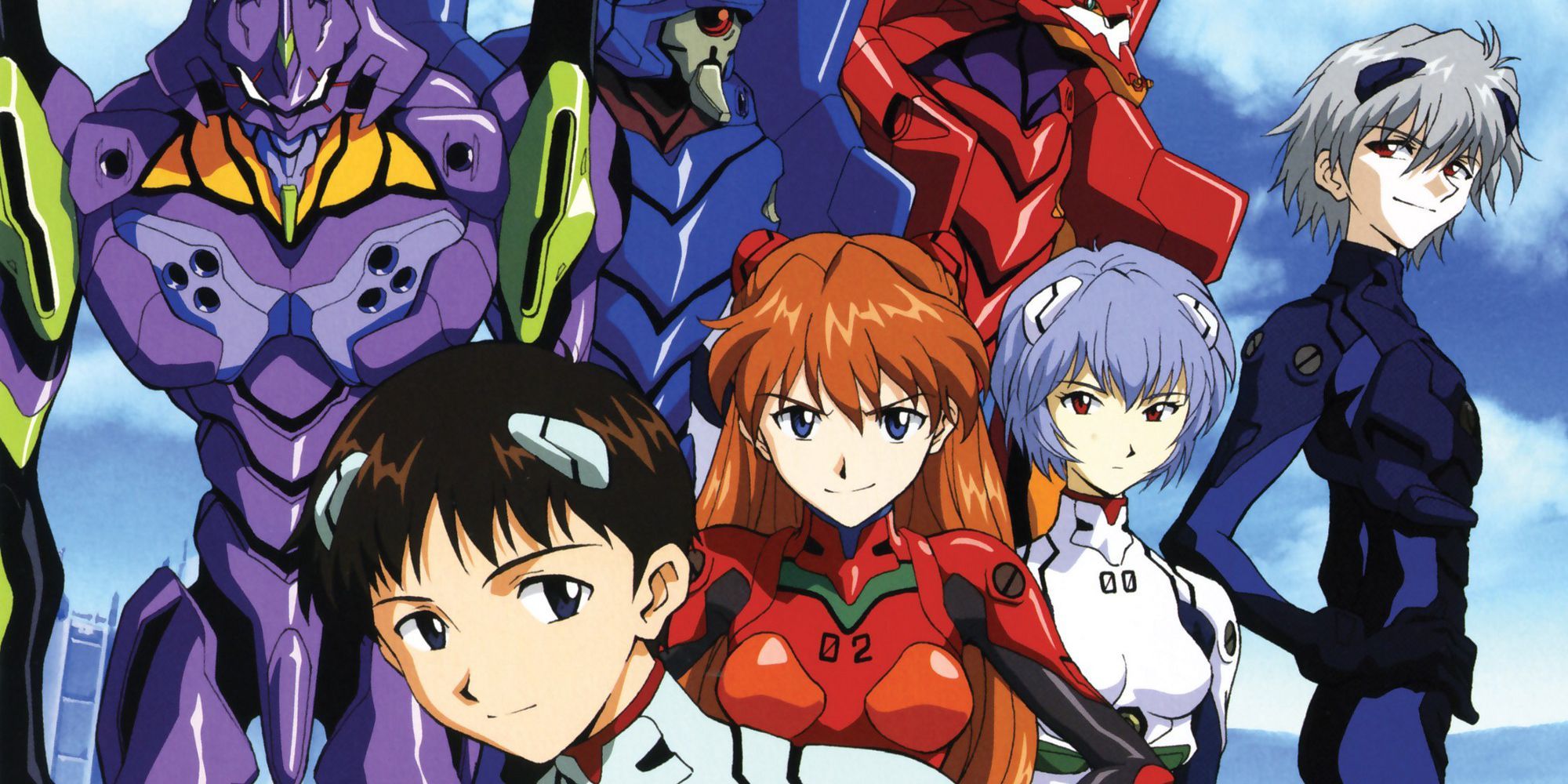
Neon Genesis Evangelion is the Anime that Revolutionized the Japanese Mecha Genre
Recently, Netflix announced that they are streaming the Original series of Neon Genesis Evangelion. All of the 26 Episodes from the year 1995 to 1996, together with the It's 2 movies (The End of Evangelion and Death & Rebirth).
Fans can again watch the series starting Spring of 2019.
Neon Genesis Evangelion (Japanese: 新世紀エヴァンゲリオン Hepburn: Shinseiki Evangerion, literally "The Gospel of the New Century") is a Japanese mecha anime television series produced by Gainax and Tatsunoko Production, and directed by Hideaki Anno and was broadcast on TV Tokyo from October 1995 to March 1996. The cast included Hideaki Anno as the director, Megumi Ogata as Shinji Ikari, Megumi Hayashibara as Rei Ayanami, and Yūko Miyamura as Asuka Langley Soryu. The music was composed by Shirō Sagisu.
Evangelion is set fifteen years after a worldwide cataclysm, particularly in the futuristic fortified city of Tokyo-3. The protagonist is Shinji, a teenage boy who was recruited by his father to the shadowy organization Nerv to pilot a giant bio-machine mecha called an "Evangelion" into combat with alien beings called "Angels". The series explores the experiences and emotions of Evangelion pilots and members of Nerv as they try to prevent any and all of the Angels from causing another cataclysm, and as they deal with the quest of finding out the real truth behind events and organizational moves. The series features imagery derived from Kabbalah, Christianity, and Judaism.
Neon Genesis Evangelion received critical acclaim, and garnered controversy. Particularly controversial were the last two episodes of the show, leading the team behind the series to produce the original intended version of the ending in the 1997 film The End of Evangelion. Regarded as a deconstruction of the mecha genre, the original TV series led to a rebirth of the anime industry and has become a cultural icon. Film, manga, home video, and other products in the Evangelion franchise have achieved record sales in Japanese markets and strong sales in overseas markets, with related goods selling over ¥150 billion by 2007 and Evangelion pachinko machines selling ¥700 billion by 2015.
Neon Genesis Evangelion (新世紀エヴァンゲリオン Shin Seiki Evangerion) is a Japanese media franchise created by Hideaki Anno and owned by Khara. Most of the franchise features an apocalyptic mecha action story, which revolves around the efforts by the paramilitary organization NERV to fight hostile beings called Angels, using giant humanoids called Evangelions that are piloted by select teenagers. Other works deviate from this theme to varying degrees, focusing more on romantic interactions between the characters, side stories which did not appear in the original works, and/or reimaginings of the conflicts from the original works.
The Neon Genesis Evangelion manga debuted in Shōnen Ace in December 1994, as a way to generate interest in the upcoming anime release. The Neon Genesis Evangelion anime was written and directed by Hideaki Anno and originally aired from October 1995 to March 1996. The show was groundbreaking, delving into religious, psychological and philosophical themes on an otherwise standard mecha backdrop. There was some debate over the controversial ending of the television series. In response, two films were made to provide an alternate ending for the show: Neon Genesis Evangelion: Death & Rebirth, released in March 1997, and The End of Evangelion released in July 1997. Death is a compilation of clips from the TV series, with some new footage added, and Rebirth comprises the first 30 minutes or so of End of Evangelion.
The popularity of the show spawned numerous additional media, including video games, radio dramas, audio books, a novel, pachinko machines, and a tetralogy of films titled Rebuild of Evangelion. Other derivative works include Angelic Days, Petit Eva: Evangelion@School and Campus Apocalypse. As of June 2018, it is the 17th highest-grossing franchise of all-time, with an estimated revenue of $14.9 billion.
No comments:
Post a Comment